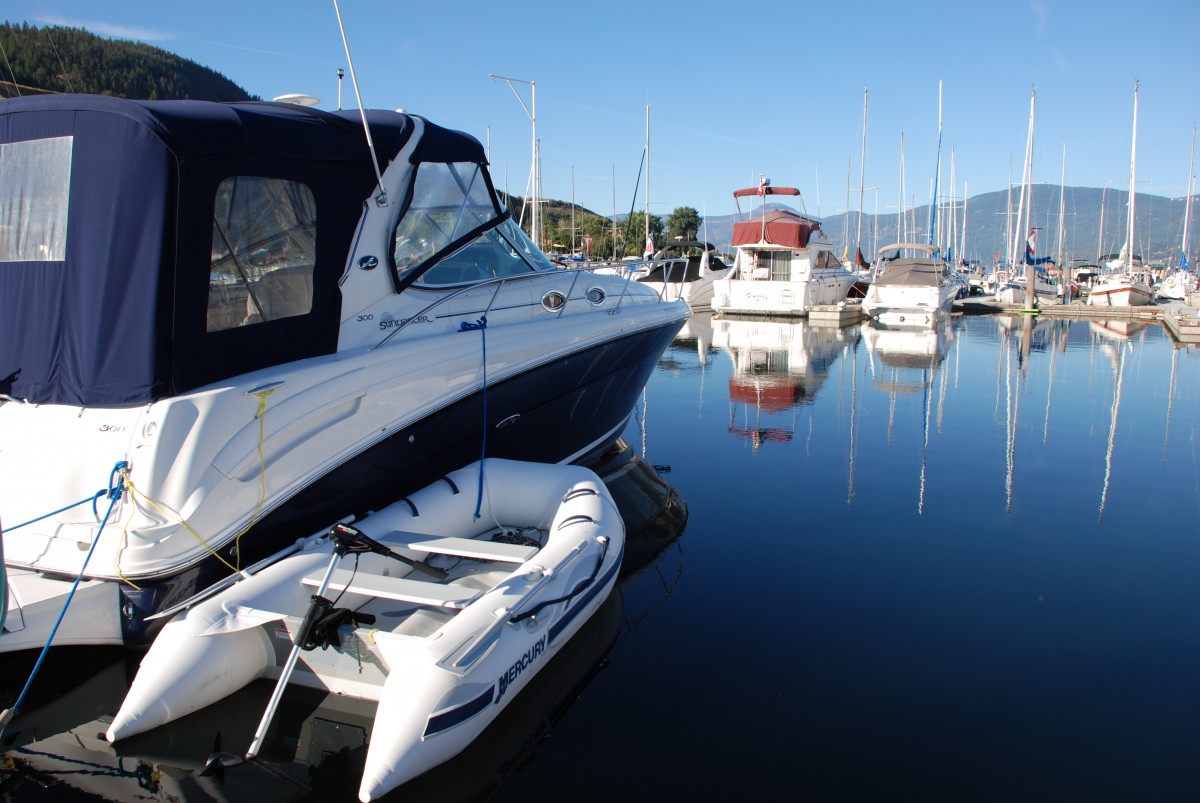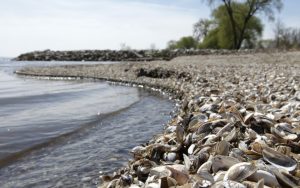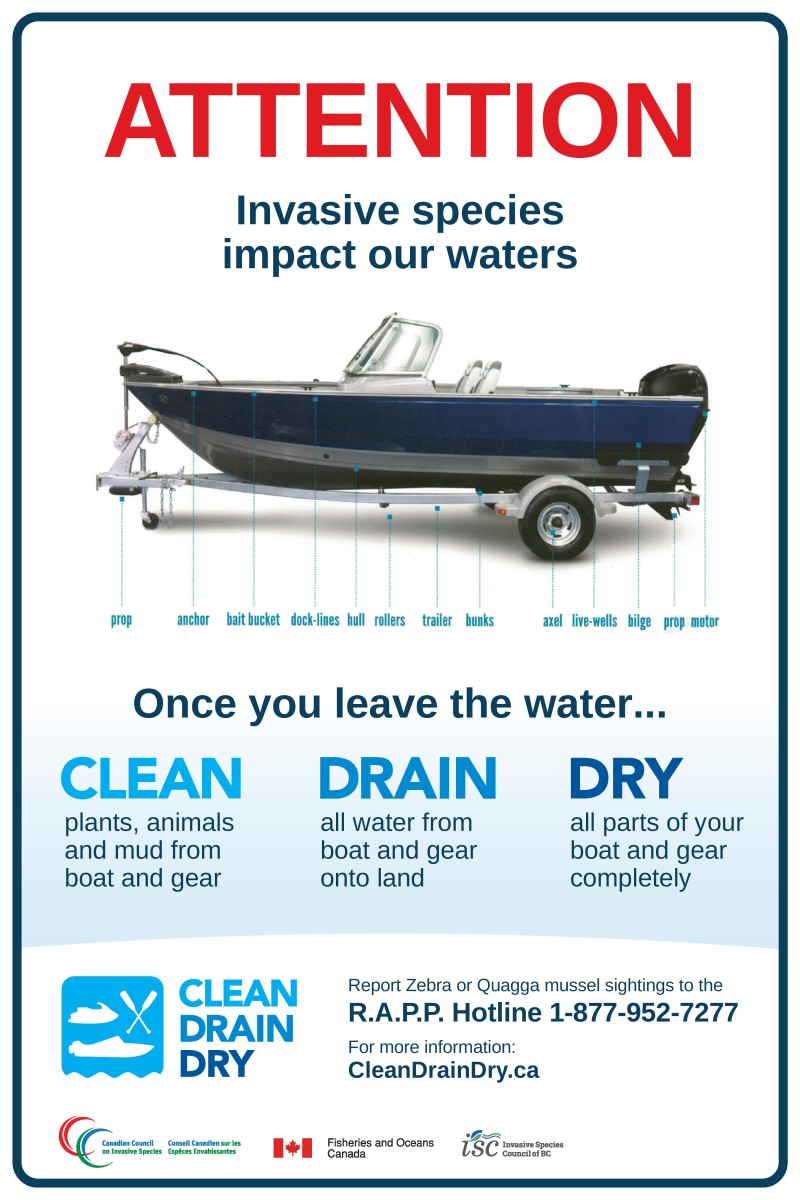Zebra and quagga mussels can be spread between lakes by contaminated watercraft.
In addition to watercraft the mussels can be spread by boat trailers, live bait wells, and even fishing gear. Adult zebra and quagga mussels can attach to virtually any solid surface and if they enter our lakes will cost millions of dollars in damage to our boating industry, our tourism industry and the ecosystem of our lakes.
Species Highlight – Zebra and Quagga Mussels
Zebra and quagga mussels (also known as invasive mussels) are small, freshwater bivalves that are usually cream coloured with darker bands or stripes. They are non-native and can cause damage to the environment, the economy, and human health once established. They are originally from Eastern Europe. In the mid 80s they arrived in North America in the ballast water of ocean liners and since then they have spread across the continent through the waterways and overland on trailered boats. To date, there has been no reported introduction of live zebra or quagga mussels into B.C. lakes or waterways. Zebra and quagga mussels are not established in British Columbia, Alberta, Saskatchewan, Oregon, Idaho, or Washington – and we would like to keep it that way!
Zebra and quagga mussels can be spread between lakes by contaminated watercraft, boat trailers, live bait wells, and even fishing gear. Adult zebra and quagga mussels can attach to virtually any solid surface. The young mussels float in water for the first month, so they will naturally move into lakes and rivers and can be moved unknowingly in bilge or ballast water, or live wells.
A study conducted in 2013 estimated that it could cost the Okanagan up to $43 million dollars if invasive mussels were to arrive. However, the value of our ecosystems, water quality, and the beauty of our lakes is priceless!
We all need to take responsibility to protect the Okanagan from the devastating impacts of zebra and quagga mussels. At this time there are no known methods for eliminating invasive mussels without severely damaging the ecosystem of the water body in which they’ve been found. The public’s help in preventing the spread of these highly invasive species is essential.
Click here to read more about Prevention for Boaters and Watercraft Owners



